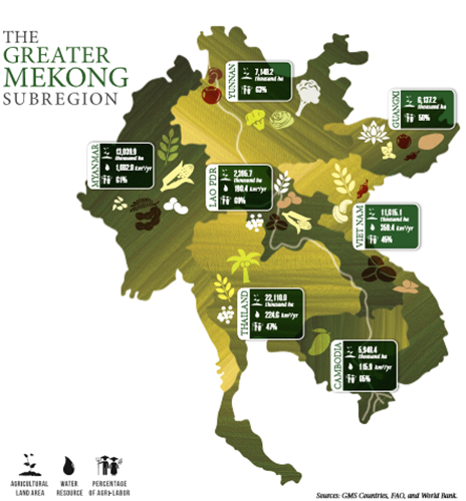
What do French Champagne, Italian Parmesan cheese, Japanese Kobe beef, and Indian Darjeeling Tea have in common? They are all protected by Geographical Indications (GI), which allow them to distinguish themselves and to be sought after by customers the world over. What is a geographical indication (GI)?
GI is a “name or sign used on products which links to a specific geographical location or origin (e.g. a town, region, or country).” GI certifies that a product, because of its geographical origin and production practices, has certain qualities that make it particularly distinct .It can also indicate that it is processed using traditional methods. (Wikipedia)
Why the use of GI? GIs can be viewed as a trusted sign of quality and value. The major advantage of GI, when compared to other labels, is that it links a product origin with quality standards (in raw production and/or processing), therefore creating a unique blend that cannot be replicated. It assures customers that they will consume a quality product with a distinctive flavor. Moreover, the uniqueness of each GI contributes to a premium positioning. GIs help local producers in escaping the raw resource production curse by moving towards higher value products. This results in higher and more sustainable incomes. The usually low volume and environmentally-friendly production of GIs (many are organics) also participates in greening food production. In the GMS, there is an increasing interest in developing GI certification for various kinds of agricultural products.
All the countries already have laws and policies with regard to GI registration, except for Myanmar which is still in the process of working out its legislation. To date, Thailand already boasts 89 registered GIs, while Viet Nam has 55. The GMS is supporting various initiatives related to GIs to ensure a wider and stronger coordination within the region. These include sharing of experiences and best practices; and joint planning and marketing activities. Systems to ensure more efficient registration and better enforcement are also actively worked upon. These will protect the reputation of GIs, and thus improve the demand in local and international markets by guaranteeing quality. It will also result in higher prices for smallholder farmer as GIs tend to command price premiums.
An example in the GMS is the 300 percent price premium received at farm gate by Kampot Pepper suppliers in Cambodia. Substantial benefits can be derived from increased promotion and registration of GIs in each GMS country: expansion of markets, scaling of production, and building of consumers’ recognition. Nonetheless, several priority issues related have arisen. Addressing these will assure the reliability and sustainability of product supplies and the market for GI products. These issues are: (1) legislative responsibilities and recognition; (2) complexity and costs; (3) gender, inclusiveness, and environmental protection; (4) reputation—safety assurances; (5) and systems, quality supply chains and price premiums. Five policy and institutional recommendations have been identified in response to the above-mentioned issues and gaps: (1) embedding legislative systems, employing multisectoral approaches, and establishing mutual recognition; (2) addressing the complexity of procedures and reducing the costs of designating a GI; (3) ensuring gender empowerment, inclusiveness, and environmental protection; (4) building and maintaining a reputation—ensuring consistent product safety and quality, with a focus on participatory guarantee systems; and (5) ensuring supply chain efficiency, increasing market recognition, and setting a platform for generating price premiums.
What are the main factors for the success of GIs? It has been argued that a main success factor for a GI supply chain (Barjolle and Sylvander, 2000) is the ability and capacity of stakeholders to effectively coordinate on the “identification of joint objectives, definition and control of quality, variety management, image promotion, and research and development.” Ineffective coordination can lead to an inefficient supply chain or/and poor quality products. One can easily comprehend how this can ruin the reputation – based on quality – of a GI GI, also not applicable to all products, represents an opportunity for smallholder farmers and local supply chain actors in the GMS, as proven by centuries of experience in Europe. The GMS is now well on its way to becoming a major producer of GI. It will no doubt reap tremendous benefits from doing so.

